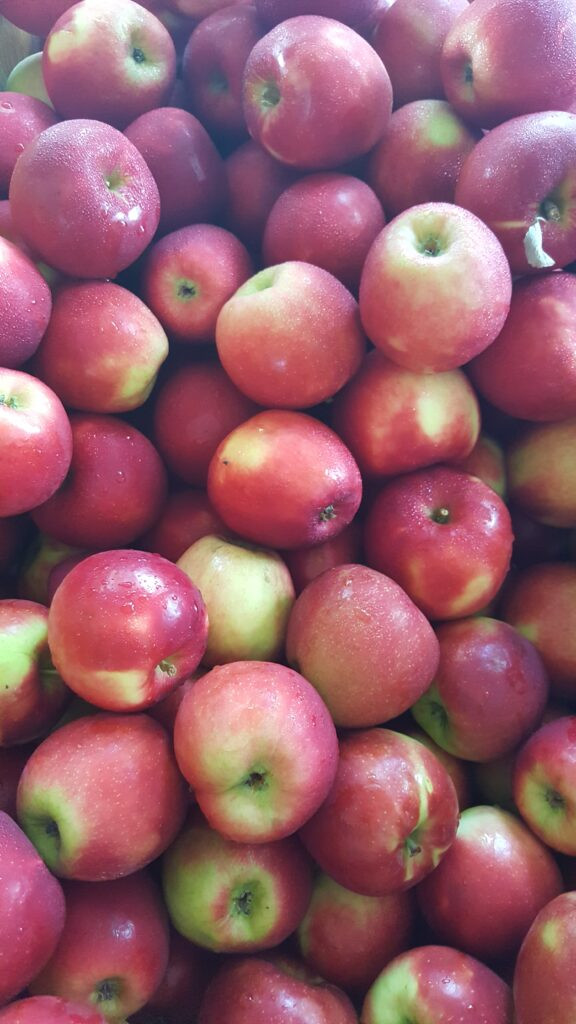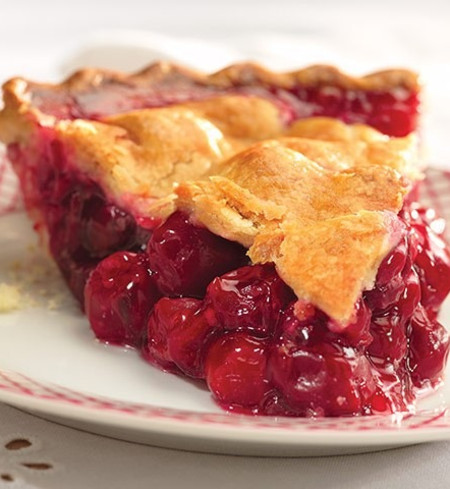A Family Farm Store is a fantastic destination for families, offering fresh produce, local goods, and a fun, educational experience. Hudsonfamily.net can help you discover family farms, create lasting memories, and support local farmers. Visit us for tips on planning your farm visit and finding the best family-friendly farm stores in your area, promoting community engagement, fostering agricultural awareness, and building stronger family bonds.
1. What Exactly Is a Family Farm Store?
A family farm store is a retail outlet located on a working family farm, selling products directly to consumers. These stores typically offer fresh produce, homemade goods, and other items produced on the farm or by local artisans. Family farm stores are more than just places to buy food; they are destinations that offer a connection to the land, the farmers who work it, and the community it supports.
Family farm stores offer a unique shopping experience compared to traditional grocery stores. You get the opportunity to purchase fresh, seasonal produce directly from the source, often picked just hours before. Additionally, many farm stores feature homemade goods such as jams, jellies, baked goods, and crafts, providing a taste of local flavors and traditions. The personal connection you make with the farmers and staff adds a layer of warmth and authenticity to your shopping trip, making it a memorable experience for the whole family.
1.1. What Products Can You Find at a Family Farm Store?
Family farm stores boast a diverse array of products. Expect fresh, seasonal fruits and vegetables alongside homemade jams, jellies, and baked goods. Many stores also offer local honey, maple syrup, dairy products, and even meat and eggs. Some family farm stores extend their offerings to include handcrafted items, such as soaps, candles, and textiles, showcasing the talents of local artisans.
1.1.1. Fresh Produce
The cornerstone of any family farm store is its selection of fresh produce. Depending on the season, you can find a variety of fruits and vegetables, including:
- Spring: Strawberries, asparagus, spinach, radishes
- Summer: Tomatoes, corn, zucchini, berries, peaches
- Fall: Apples, pumpkins, squash, sweet potatoes
- Winter: Root vegetables like carrots, potatoes, and beets (availability may vary)
 Assortment of fresh fruits and vegetables at a family farm store
Assortment of fresh fruits and vegetables at a family farm store
Image alt: Crimson Crisp apples freshly picked at a family farm, showcasing their vibrant color and freshness.
1.1.2. Homemade Goods
Many family farm stores take pride in their selection of homemade goods, prepared using recipes passed down through generations. Common offerings include:
- Jams and Jellies: Made with locally grown fruits, these preserves capture the flavors of the season.
- Baked Goods: Freshly baked pies, cookies, breads, and donuts provide a sweet treat for visitors.
- Pickles and Relishes: Tangy and flavorful, these preserved vegetables add a zesty touch to any meal.
1.1.3. Local Specialties
Family farm stores often carry unique products that reflect the region’s culinary traditions. These may include:
- Honey and Maple Syrup: Sourced from local beekeepers and maple syrup producers, these sweeteners add a touch of natural sweetness to your table.
- Dairy Products: Fresh milk, cheese, and yogurt from local dairies offer a taste of farm-fresh goodness.
- Meat and Eggs: Some family farm stores sell meat and eggs from animals raised on the farm, providing a direct connection to the source of your food.
1.1.4. Handcrafted Items
In addition to food products, some family farm stores showcase the talents of local artisans by offering handcrafted items such as:
- Soaps and Candles: Made with natural ingredients, these products offer a sensory experience that connects you to the land.
- Textiles: Handwoven blankets, scarves, and other textiles add a touch of warmth and artistry to your home.
- Pottery and Ceramics: Unique and functional, these pieces of art bring beauty to everyday life.
1.2. What Are the Benefits of Shopping at a Family Farm Store?
Shopping at a family farm store is not just a transaction; it’s an experience that benefits you, the farmer, and the community.
1.2.1. Freshness and Quality
One of the primary advantages of shopping at a family farm store is the unparalleled freshness and quality of the products. Produce is often harvested just hours before it’s offered for sale, ensuring maximum flavor and nutritional value. Homemade goods are prepared with care using traditional recipes and high-quality ingredients, resulting in products that taste better and are often healthier than their commercially produced counterparts.
1.2.2. Supporting Local Farmers
When you shop at a family farm store, you are directly supporting local farmers and their families. Your purchases help them sustain their livelihoods, preserve their land, and continue providing fresh, local food to the community. According to the United States Department of Agriculture (USDA), supporting local farms strengthens the local economy and creates jobs in rural communities.
1.2.3. Environmental Sustainability
Family farms often employ sustainable farming practices that minimize their impact on the environment. These practices may include:
- Crop Rotation: Rotating crops helps to improve soil health and reduce the need for synthetic fertilizers.
- Integrated Pest Management (IPM): IPM strategies minimize the use of pesticides by employing natural pest control methods.
- Water Conservation: Efficient irrigation techniques and water harvesting methods help to conserve water resources.
By supporting family farms that use sustainable practices, you are contributing to a healthier environment and a more sustainable food system.
1.2.4. Community Connection
Family farm stores provide a gathering place for the community, fostering connections between neighbors and strengthening social bonds. You have the opportunity to meet the farmers who grow your food, learn about their farming practices, and share stories with other members of the community. This sense of community is especially valuable in today’s fast-paced world, where opportunities for genuine connection are often limited.
1.3. How Do Family Farm Stores Differ From Traditional Grocery Stores?
Family farm stores offer a shopping experience that is distinctly different from traditional grocery stores. Here’s a comparison of the key differences:
| Feature | Family Farm Store | Traditional Grocery Store |
|---|---|---|
| Source of Food | Locally grown, often on the farm itself | Sourced from various locations, including national and international suppliers |
| Freshness | Extremely fresh, often harvested the same day | Varies, depending on the product and supply chain |
| Product Variety | Seasonal and limited to what the farm or local artisans produce | Wide variety of products available year-round |
| Price | May be higher for some items due to smaller scale production and higher quality | Generally lower prices due to economies of scale |
| Customer Service | Personalized service, opportunity to meet the farmer and learn about the food | Standardized service, limited interaction with staff |
| Community Impact | Supports local farmers, strengthens the local economy, and fosters community connections | Primarily focused on profit maximization, with less direct impact on the local community |
| Experience | Unique and educational, offering a connection to the land and the people who grow your food | Convenient and efficient, focused on providing a wide selection of products at competitive prices |
2. What Activities Can Families Enjoy at a Farm Store?
Family farm stores offer a range of activities beyond shopping, providing a fun and educational experience for the whole family.
2.1. Pick-Your-Own Produce
Many family farm stores offer pick-your-own (PYO) opportunities, allowing you to harvest your own fruits and vegetables directly from the field. PYO activities are a great way to:
- Get Exercise: Spend time outdoors, getting fresh air and physical activity.
- Learn About Agriculture: See firsthand how food is grown and harvested.
- Create Memories: Enjoy a fun and memorable experience with your family.
Common PYO crops include strawberries, blueberries, apples, pumpkins, and tomatoes. Check with the farm store in advance to find out what crops are currently available for picking and what the pricing structure is.
2.2. Farm Animal Encounters
Many family farm stores have farm animals that you can visit and interact with. This can be a particularly rewarding experience for children, who may not have the opportunity to see farm animals up close in their everyday lives. Common farm animals you might encounter include:
- Cows
- Pigs
- Chickens
- Goats
- Sheep
Some farms offer petting zoos or opportunities to feed the animals, providing a more interactive experience.
 Children feeding goats at a family farm store
Children feeding goats at a family farm store
Image alt: Two children in Tougas branded t-shirts happily feeding goats at a family farm, illustrating the joy of farm animal interactions.
2.3. Hayrides and Corn Mazes
During the fall, many family farm stores offer hayrides and corn mazes, providing classic autumn entertainment for families.
- Hayrides: Enjoy a scenic ride through the farm fields on a tractor-pulled wagon.
- Corn Mazes: Get lost in a maze of corn stalks, challenging your navigation skills and having fun with your family.
These activities are a great way to celebrate the harvest season and enjoy the beauty of the countryside.
2.4. Educational Programs and Demonstrations
Some family farm stores offer educational programs and demonstrations that teach visitors about agriculture, food production, and the importance of supporting local farms. These programs may include:
- Farm Tours: Learn about the farm’s history, its farming practices, and the crops it grows.
- Cooking Demonstrations: Watch chefs prepare delicious dishes using fresh, local ingredients.
- Workshops: Participate in hands-on workshops to learn about gardening, canning, or other skills.
These programs provide valuable insights into the world of agriculture and help to connect you more deeply with your food.
2.5. Seasonal Festivals and Events
Many family farm stores host seasonal festivals and events throughout the year, celebrating the changing seasons and the bounty of the harvest. These events may include:
- Spring Planting Festivals: Celebrate the arrival of spring and the start of the growing season.
- Summer Berry Festivals: Enjoy live music, food vendors, and activities for kids.
- Fall Harvest Festivals: Celebrate the harvest season with pumpkin picking, hayrides, and corn mazes.
- Christmas Tree Farms: Cut your own Christmas tree and enjoy the festive atmosphere.
These events provide a fun and festive atmosphere for the whole family and are a great way to experience the unique charm of a family farm store.
3. How To Plan a Visit to a Family Farm Store
Planning a visit to a family farm store requires some preparation to ensure a fun and fulfilling experience for everyone.
3.1. Research Local Farm Stores
Start by researching family farm stores in your area. Websites like hudsonfamily.net can provide listings of local farms, along with information about their products, activities, and hours of operation. You can also use online search engines or social media to find family farm stores near you.
3.2. Check Hours of Operation and Seasonal Availability
Before heading to a family farm store, be sure to check their hours of operation and seasonal availability. Many farm stores have limited hours or are only open during certain seasons. You’ll also want to find out what crops are currently available for picking or what activities are being offered.
3.3. Dress Appropriately
When visiting a family farm store, it’s important to dress appropriately for the weather and the activities you plan to participate in. Wear comfortable shoes that you don’t mind getting dirty, and dress in layers so you can adjust to changing temperatures. If you plan to pick your own produce, wear clothing that you don’t mind getting stained.
3.4. Bring Cash or a Check
While some family farm stores accept credit cards, many prefer cash or checks. Be sure to bring enough cash or a checkbook to cover your purchases.
3.5. Pack Snacks and Drinks
If you plan to spend several hours at a family farm store, it’s a good idea to pack snacks and drinks. This will help you stay energized and hydrated, especially if you’re participating in outdoor activities.
3.6. Be Prepared for the Weather
Check the weather forecast before heading to a family farm store and be prepared for the conditions. Bring sunscreen, hats, and sunglasses on sunny days, and bring rain gear if there’s a chance of showers.
3.7. Supervise Children Closely
When visiting a family farm store with children, it’s important to supervise them closely. Farm equipment, animals, and other hazards can pose a risk to children who are not properly supervised.
3.8. Respect the Farm and Its Animals
When visiting a family farm store, it’s important to respect the farm and its animals. Follow any rules or guidelines that the farm has in place, and be mindful of your behavior. Avoid littering, damaging crops, or disturbing the animals.
4. Family Farm Store: A Day Trip Destination in Texas
Texas boasts a rich agricultural heritage and a growing number of family farm stores that offer a unique and rewarding experience for families. From picking your own peaches in the Hill Country to exploring pumpkin patches in North Texas, there’s something for everyone to enjoy.
4.1. Top Family Farm Stores in Texas
Here are some of the top family farm stores in Texas:
-
Sweet Berry Farm (Marble Falls): Offers PYO strawberries, blackberries, pumpkins, and other seasonal crops. Also features a petting zoo, hayrides, and a corn maze.
-
Ham Orchards (Terrill): Famous for its juicy peaches and homemade peach ice cream. Also offers a variety of other fruits, vegetables, and baked goods.
-
Barton Hill Farms (Fredericksburg): Features a pumpkin patch, corn maze, and other fall activities. Also offers a variety of farm-fresh produce and homemade goods.
-
Froberg’s Farm (Alvin): Offers PYO strawberries, blueberries, and other seasonal crops. Also features a petting zoo, a playground, and a gift shop.
-
Pecan Creek Strawberry Farm (Pilot Point): Offers PYO strawberries and other seasonal crops. Also features a playground and picnic area.
4.2. Seasonal Activities in Texas Family Farms
Texas family farm stores offer a variety of seasonal activities throughout the year. Here’s a glimpse of what you can expect:
- Spring: Strawberry picking, wildflower viewing, and farm animal encounters.
- Summer: Peach picking, blackberry picking, and watermelon festivals.
- Fall: Pumpkin patch visits, corn mazes, and hayrides.
- Winter: Christmas tree farms, holiday markets, and winter festivals.
 Freshly picked strawberries at a family farm store
Freshly picked strawberries at a family farm store
Image alt: A close-up shot of a freshly baked cherry pie, showcasing the homemade treats available at family farm stores.
4.3. Tips for Visiting Texas Family Farms
Here are some additional tips for visiting family farm stores in Texas:
- Check the weather forecast: Texas weather can be unpredictable, so be sure to check the forecast before you go.
- Bring sunscreen and insect repellent: Protect yourself from the sun and insects.
- Wear comfortable shoes: You’ll be doing a lot of walking, so wear comfortable shoes.
- Bring water: Stay hydrated, especially during the summer months.
- Be prepared for crowds: Family farm stores can be popular, especially on weekends, so be prepared for crowds.
5. Family Farm Stores and the Community
Family farm stores play a vital role in strengthening the community and promoting local economies.
5.1. Supporting Local Economies
Family farm stores contribute to the local economy by:
- Creating Jobs: Hiring local residents to work on the farm and in the store.
- Purchasing Supplies from Local Businesses: Supporting other businesses in the community.
- Keeping Money in the Community: Ensuring that profits stay within the local economy.
By supporting family farm stores, you are helping to create a more vibrant and sustainable local economy.
5.2. Preserving Agricultural Heritage
Family farm stores help to preserve agricultural heritage by:
- Maintaining Farmland: Keeping land in agricultural production, rather than allowing it to be developed for other uses.
- Passing on Farming Traditions: Teaching younger generations about farming and preserving traditional farming practices.
- Connecting People to Their Food: Helping people understand where their food comes from and the importance of supporting local agriculture.
By supporting family farm stores, you are helping to protect the agricultural heritage of your community.
5.3. Promoting Healthy Eating Habits
Family farm stores promote healthy eating habits by:
- Providing Access to Fresh Produce: Making it easier for people to access fresh, healthy fruits and vegetables.
- Educating People About Nutrition: Sharing information about the nutritional benefits of eating local, seasonal produce.
- Encouraging Healthy Cooking: Inspiring people to cook healthy meals using fresh, local ingredients.
By supporting family farm stores, you are helping to create a healthier community.
5.4. Fostering Community Connections
Family farm stores foster community connections by:
- Providing a Gathering Place: Creating a space where people can come together to shop, socialize, and learn.
- Hosting Community Events: Organizing festivals, workshops, and other events that bring people together.
- Supporting Local Charities: Donating a portion of their profits to local charities and community organizations.
By supporting family farm stores, you are helping to create a stronger and more connected community.
6. The Future of Family Farm Stores
Family farm stores are experiencing a resurgence in popularity as more and more people seek out fresh, local food and a connection to the land. This trend is likely to continue in the future, as consumers become increasingly aware of the benefits of supporting local agriculture and sustainable farming practices.
6.1. Trends in the Family Farm Store Industry
Some of the key trends in the family farm store industry include:
- Increased Focus on Sustainability: More family farm stores are adopting sustainable farming practices and promoting environmental stewardship.
- Expansion of Product Offerings: Family farm stores are expanding their product offerings to include more value-added products, such as prepared foods, beverages, and handcrafted items.
- Use of Technology: Family farm stores are using technology to improve their operations, such as online ordering, social media marketing, and customer relationship management (CRM) systems.
- Collaboration and Partnerships: Family farm stores are collaborating with other local businesses and organizations to promote local agriculture and tourism.
- Educational Programming: Family farm stores are offering more educational programs and events to engage customers and teach them about agriculture and food production.
6.2. Challenges Facing Family Farm Stores
Despite the growing popularity of family farm stores, they still face a number of challenges, including:
- Competition from Large Retailers: Family farm stores must compete with large grocery chains and other retailers that offer a wider selection of products at lower prices.
- Seasonality: The availability of fresh produce at family farm stores is often limited by the growing season.
- Labor Costs: Family farm stores often have higher labor costs than larger retailers, due to the need for more personalized customer service and labor-intensive farming practices.
- Regulations: Family farm stores must comply with a variety of regulations related to food safety, labeling, and zoning.
- Weather: Unpredictable weather patterns can impact crop yields and affect the availability of produce at family farm stores.
6.3. How To Support Family Farm Stores
There are many ways to support family farm stores, including:
- Shopping at Family Farm Stores: Make a conscious effort to purchase your produce, meat, eggs, and other products from family farm stores whenever possible.
- Spreading the Word: Tell your friends, family, and neighbors about the benefits of shopping at family farm stores.
- Volunteering: Volunteer your time to help out at a family farm store.
- Donating: Donate to organizations that support local agriculture and family farms.
- Advocating: Advocate for policies that support family farms and sustainable agriculture.
7. Hudsonfamily.net: Your Guide to Family Farm Stores
At hudsonfamily.net, we’re passionate about connecting families with the joys of farm life. Explore our website for:
- Detailed Listings: Find family farm stores near you, complete with contact information, hours, and a list of products and activities.
- Insider Tips: Get advice on planning the perfect farm visit, from what to wear to what to bring.
- Seasonal Guides: Discover the best times to visit farms for specific crops and activities.
- Inspiring Stories: Read about the families behind the farms and their commitment to sustainable agriculture.
8. Frequently Asked Questions (FAQs) About Family Farm Stores
8.1. What is the best time of year to visit a family farm store?
The best time to visit a family farm store depends on what you’re looking for. Spring is great for strawberry picking and seeing baby animals, summer is perfect for peaches and berries, and fall is ideal for pumpkins and corn mazes.
8.2. Are family farm stores more expensive than grocery stores?
Some items at family farm stores may be more expensive than at grocery stores, but the quality and freshness are often superior. You’re also supporting local farmers and the community.
8.3. What should I wear to a family farm store?
Wear comfortable shoes and clothing that you don’t mind getting dirty. Dress in layers, as the weather can change quickly.
8.4. Can I bring my dog to a family farm store?
Some family farm stores allow dogs, but it’s best to check their pet policy before you go. Be sure to keep your dog on a leash and clean up after them.
8.5. Are family farm stores accessible to people with disabilities?
Accessibility varies from farm to farm. Contact the farm store in advance to inquire about accessibility features.
8.6. Do family farm stores offer organic produce?
Some family farm stores offer organic produce. Look for the “Certified Organic” label or ask the farmer about their growing practices.
8.7. Can I bring my own containers to pick my own produce?
Some family farm stores allow you to bring your own containers, but it’s best to check their policy before you go.
8.8. Are there restrooms available at family farm stores?
Most family farm stores have restrooms available for customers.
8.9. Do family farm stores offer gift certificates?
Many family farm stores offer gift certificates, which make a great gift for friends and family.
8.10. How can I find out about events happening at family farm stores?
Check the family farm store’s website or social media pages for information about upcoming events. You can also sign up for their email list to receive updates.
9. Conclusion: Embrace the Family Farm Store Experience
Visiting a family farm store is more than just a shopping trip; it’s an opportunity to connect with your community, support local farmers, and enjoy the bounty of the land. It’s a chance to create lasting memories with your family and teach your children about the importance of agriculture and healthy eating.
So, plan your visit to a family farm store today and experience the joys of farm life firsthand. And be sure to visit hudsonfamily.net for tips, resources, and inspiration to help you make the most of your family farm adventures. Contact us at Address: 1100 Congress Ave, Austin, TX 78701, United States. Phone: +1 (512) 974-2000. Website: hudsonfamily.net.

